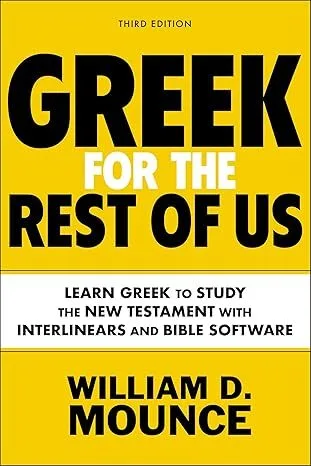Pronunciation Guide: eye-doh-loh-lah-TREE-ah (emphasis on the “TREE” syllable)
Basic Definition

Key Information
εἰδωλολατρία

Strong’s Entry
g1495
Strong’s G1495: εἰδωλολατρία (eidōlolatria) refers to the worship of false gods or idols, literally meaning “image-service” or “idol-worship.” This term encompasses not only the physical act of bowing to statues or images but extends to placing anything above the worship of the one true God. In biblical usage, it represents one of the most serious spiritual offenses as it directly violates the first and second commandments and constitutes spiritual adultery against יהוה (Yahweh).
Etymology and Morphology
- Part of Speech: Feminine noun
- Compound Word: Formed from εἴδωλον (eidōlon, “idol/image”) + λατρεία (latreia, “service/worship”)
- Language Origin: Koine Greek
- Primary Usage: Predominantly found in Pauline epistles and teaching passages
- Frequency: Appears 4 times in the New Testament
εἰδωλολατρία Morphology:
- εἰδωλολατρία (nominative singular) – idolatry
- εἰδωλολατρίας (genitive singular) – of idolatry
- εἰδωλολατρίᾳ (dative singular) – in/with idolatry
- εἰδωλολατρίαν (accusative singular) – (direct object) idolatry
Origin & History
The term εἰδωλολατρία appears to be a distinctly Jewish-Christian formation, not found in classical Greek literature before the New Testament era. It combines the well-established Greek term εἴδωλον (image/idol), which had been used extensively in the Septuagint to translate Hebrew terms for idols (particularly גִּלּוּלִים/gillulim and פֶּסֶל/pesel), with λατρεία (service/worship), which in religious contexts referred to ritual service or worship.
The Septuagint frequently condemned idolatry, though using different terminology such as εἴδωλα (idols) or phrases like “serving foreign gods.” The compound term εἰδωλολατρία seems to have been coined within early Jewish-Christian communities to succinctly express this severe violation of covenant faithfulness. After its New Testament usage, the term was adopted by early Church Fathers such as Justin Martyr in his “Dialogue with Trypho” and Tertullian in “De Idololatria,” where both expanded the concept beyond physical idols to include various forms of spiritual unfaithfulness.
Expanded Definitions & Translation Options
- Primary meaning as the worship of physical idols or false deities through ritual practices and sacrifices
- Extended meaning as giving inappropriate priority to anything that displaces God from His rightful position
- Metaphorical usage as spiritual unfaithfulness or covenant betrayal
- Practical manifestation in materialistic obsessions, including greed (which Paul explicitly identifies as idolatry in Colossians 3:5)
- Religious syncretism that blends worship of יהוה with pagan elements
εἰδωλολατρία Translation Options:
- Idolatry – The most common translation, though this can be limited in modern understanding to just physical idol worship rather than the full biblical concept
- Idol worship – Emphasizes the active service aspect of the term’s λατρεία component
- False worship – Captures the spiritual essence without limiting to physical objects
- Spiritual adultery – Reflects the covenant perspective of Israel’s relationship with God
- Misplaced devotion – Conveys the broader application to modern contexts where physical idols are less common
Biblical Usage
In the New Testament, εἰδωλολατρία appears in contexts emphasizing its serious spiritual consequences. Paul consistently lists it among the “works of the flesh” that are incompatible with the kingdom of God. The term is notably associated with severe warnings and calls to separation from such practices. The Jewish background of this concept traces through the entire Old Testament, where idolatry repeatedly caused Israel’s downfall and divine judgment.
The Apostle Paul employs this term when addressing both Jewish and Gentile audiences, recognizing that for former pagans, separating from idolatrous practices often meant painful social and familial separation. For Jewish believers, it represented the quintessential covenant violation that had repeatedly led their ancestors into exile. In each context, εἰδωλολατρία is presented not just as external behavior but as a heart orientation that must be thoroughly rejected.
- “Therefore, my beloved, flee from idolatry [εἰδωλολατρίας].” 1 Corinthians 10:14
- “Now the deeds of the flesh are evident, which are: immorality, impurity, sensuality, idolatry [εἰδωλολατρία], sorcery, enmities, strife, jealousy, outbursts of anger, disputes, dissensions, factions.” Galatians 5:20
- “Therefore consider the members of your earthly body as dead to immorality, impurity, passion, evil desire, and greed, which amounts to idolatry [εἰδωλολατρία].” Colossians 3:5
- “For the time already past is sufficient for you to have carried out the desire of the Gentiles, having pursued a course of sensuality, lusts, drunkenness, carousing, drinking parties and abominable idolatries [εἰδωλολατρίαις].” 1 Peter 4:3
Cultural Insights
In the Greco-Roman world of the first century, idolatry wasn’t merely a religious choice but fundamentally woven into social, economic, and political life. Trade guilds held ceremonies honoring patron deities, civic celebrations centered around temple activities, and even family meals often included rituals acknowledging household gods. Refusing to participate in these idolatrous practices could result in social ostracism, economic hardship, and even political suspicion.
The Jewish historical experience with idolatry provided a powerful backdrop to the New Testament usage. After the Babylonian exile (586-538 BCE), mainstream Judaism developed a profound aversion to physical idolatry, seeing it as the primary cause of their national calamity. The Maccabean revolt (167-160 BCE) was sparked by Antiochus IV Epiphanes’ placement of pagan idols in the Jerusalem Temple, causing deep cultural trauma. By the first century, while Jews had largely abandoned physical idol worship, the prophets’ extended metaphorical understanding of idolatry as any form of covenant unfaithfulness remained deeply influential in Jewish theology, particularly in how the term εἰδωλολατρία developed in early Jewish-Christian contexts.
Theological Significance
Εἰδωλολατρία represents a direct violation of the fundamental covenant relationship between יהוה and His people. The first commandment, “You shall have no other gods before Me” (Exodus 20:3), establishes exclusive devotion as the foundation of relationship with God. When this exclusivity is broken through idolatry, the covenant relationship is violated at its core. This explains why throughout Scripture, idolatry is frequently described using marital imagery as spiritual adultery.
The theological gravity of εἰδωλολατρία stems from God’s self-revelation as “a jealous God” (Exodus 20:5), a phrase expressing not divine insecurity but rather the passionate exclusivity of His covenant love. This jealousy reflects His perfect love and commitment to His people, making idolatry not merely rule-breaking but heart-breaking to God. In New Testament theology, idolatry is explicitly linked with demonic influence (1 Corinthians 10:19-20), elevating its danger beyond merely misplaced devotion to active opposition against God’s kingdom. The Messiah’s sacrifice specifically liberates believers from this bondage, enabling true worship of the living God in spirit and truth.
Personal Application
Recognizing εἰδωλολατρία in our modern context requires honest self-examination beyond obvious forms of false religion. In contemporary life, idolatry often manifests as ultimate commitment to career advancement, financial security, public reputation, political ideologies, technological dependence, or even family relationships when these displace God from His rightful position in our hearts. The question is not merely what we claim to believe but what functionally shapes our decisions, consumes our thoughts, and claims our deepest affections.
Liberation from idolatry begins with acknowledging that our hearts naturally manufacture idols, even within religious contexts. Regular spiritual inventory through prayer like “Search me, O God, and know my heart” (Psalm 139:23) allows the Holy Spirit to expose subtle forms of εἰδωλολατρία in our lives. True freedom comes not through mere behavior modification but through growing in authentic love for יהוה that displaces lesser loves and reorders all relationships and priorities under His lordship.
Related Words
- εἴδωλον (eidōlon, “idol/image”) – The physical representation or image used in idolatrous worship; more narrowly focused on the object rather than the practice of worship. See G1497
- εἰδωλολάτρης (eidōlolatrēs, “idolater”) – The person who practices idolatry; Paul warns that such individuals will not inherit God’s kingdom. See G1496
- λατρεία (latreia, “service/worship”) – Religious service or worship directed properly toward God but misdirected in idolatry; emphasizes the active service aspect. See G2999
- προσκυνέω (proskyneō, “to bow down/worship”) – The physical act of prostration or reverence that should be reserved for God alone but is given to idols in idolatry. See G4352
- πλεονεξία (pleonexia, “greed/covetousness”) – Specifically identified by Paul as a form of idolatry; represents the idolatrous heart attitude without necessarily involving physical idols. See G4124
Did you Know?
- The earliest Jewish converts to faith in Yeshua (Jesus) faced a profound dilemma regarding idol meat (food sacrificed to idols), which created one of the first major practical theological conflicts in the early church. The Jerusalem Council (Acts 15) specifically addressed εἰδωλολατρία by requiring Gentile believers to abstain from food polluted by idols, demonstrating how seriously this issue was taken even when physical participation in temple rituals was not involved.
- The Greek term εἰδωλολατρία linguistically connects to modern English words through interesting etymological pathways. Our word “idol” derives directly from εἴδωλον, while “-latry” appears in words like “bibliolatry” (excessive devotion to the Bible itself rather than its Author) and “technolatry” (worship of technology). This linguistic connection reminds us that idolatry remains a perennial human tendency, merely changing forms across cultures and eras.
- During times of Roman persecution, Christians were often not required to abandon their faith entirely but simply to perform a small ritual act of emperor worship as a civic duty. Many believers went to their deaths rather than commit even this seemingly minor act of εἰδωλολατρία, understanding that no compromise with idolatry was acceptable, regardless of social pressure or consequences. Their testimony reminds us of the seriousness with which the early believers viewed any form of divided loyalty or worship.
Remember This
Εἰδωλολατρία is not merely about statues or religious rituals but reveals the human heart’s tendency to displace the Creator with created things—the diagnosis of our deepest spiritual disorder for which only the Messiah’s transformative love provides the cure.
Note: While this entry strives for accuracy, readers engaged in critical research should verify citations and keyword occurrences in their Bible translation of choice. For Biblical citations, the F.O.G Bible project recommends Logos Bible software.
Strong's g1495




